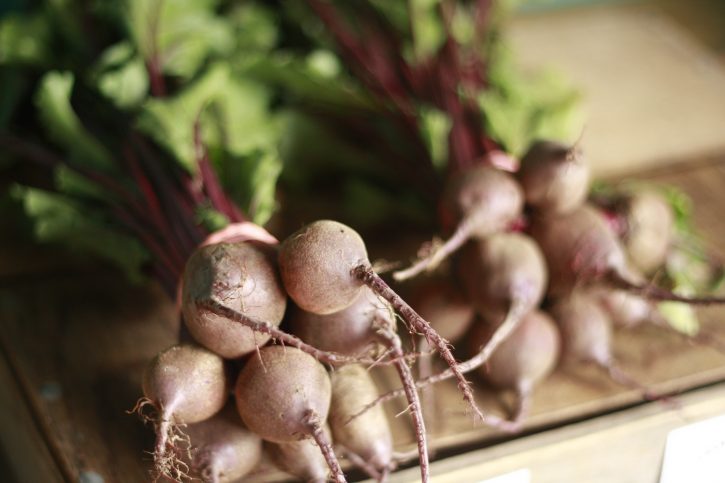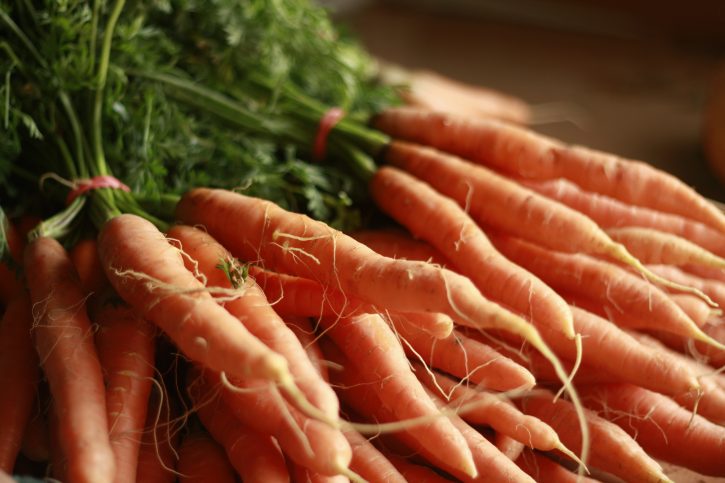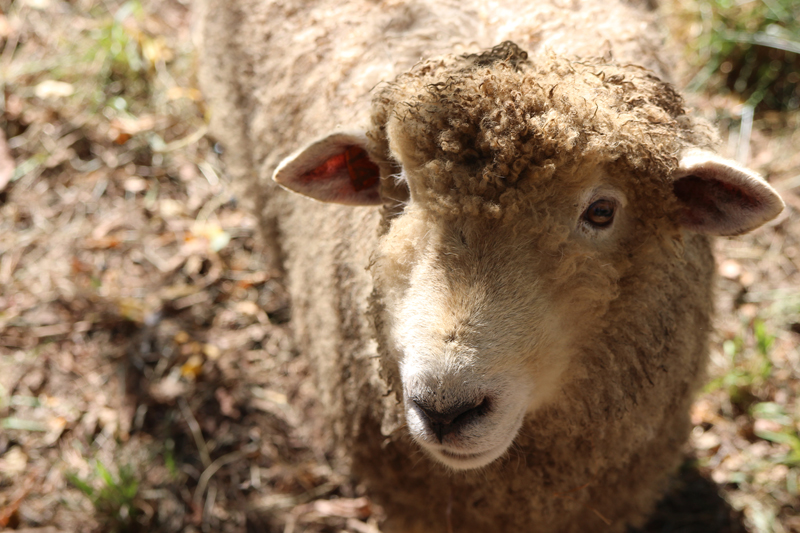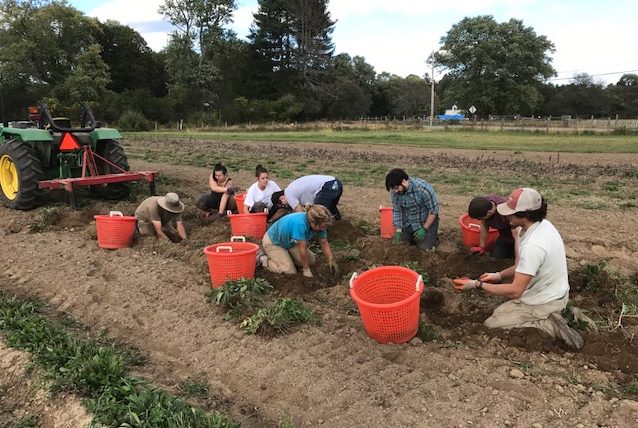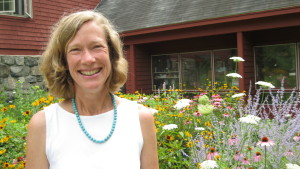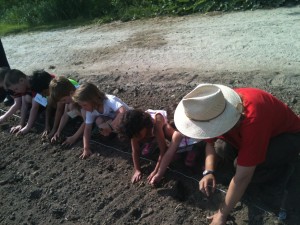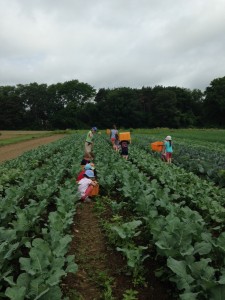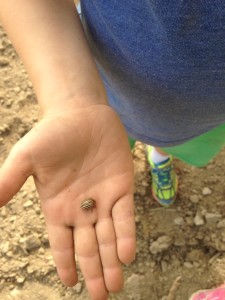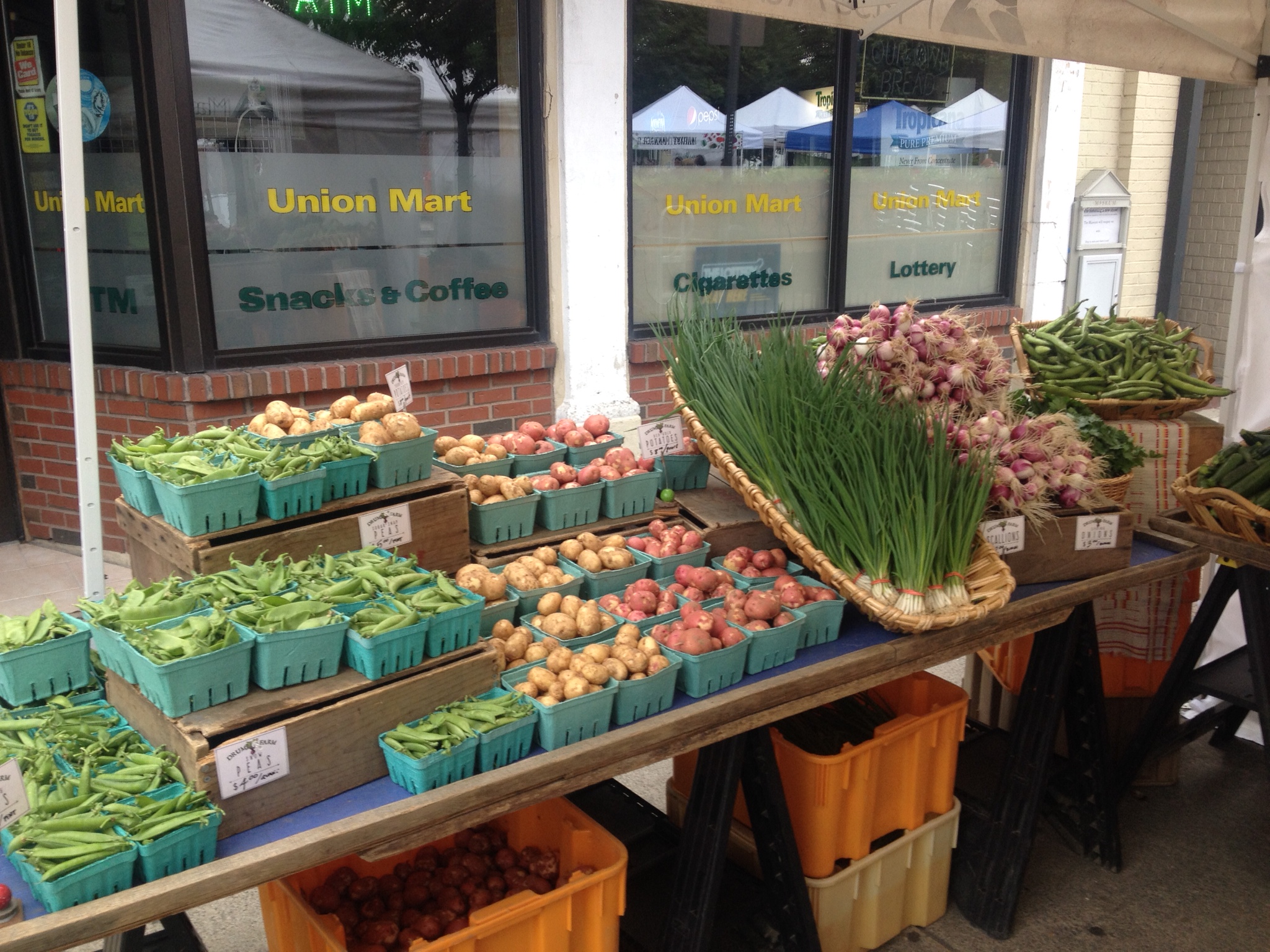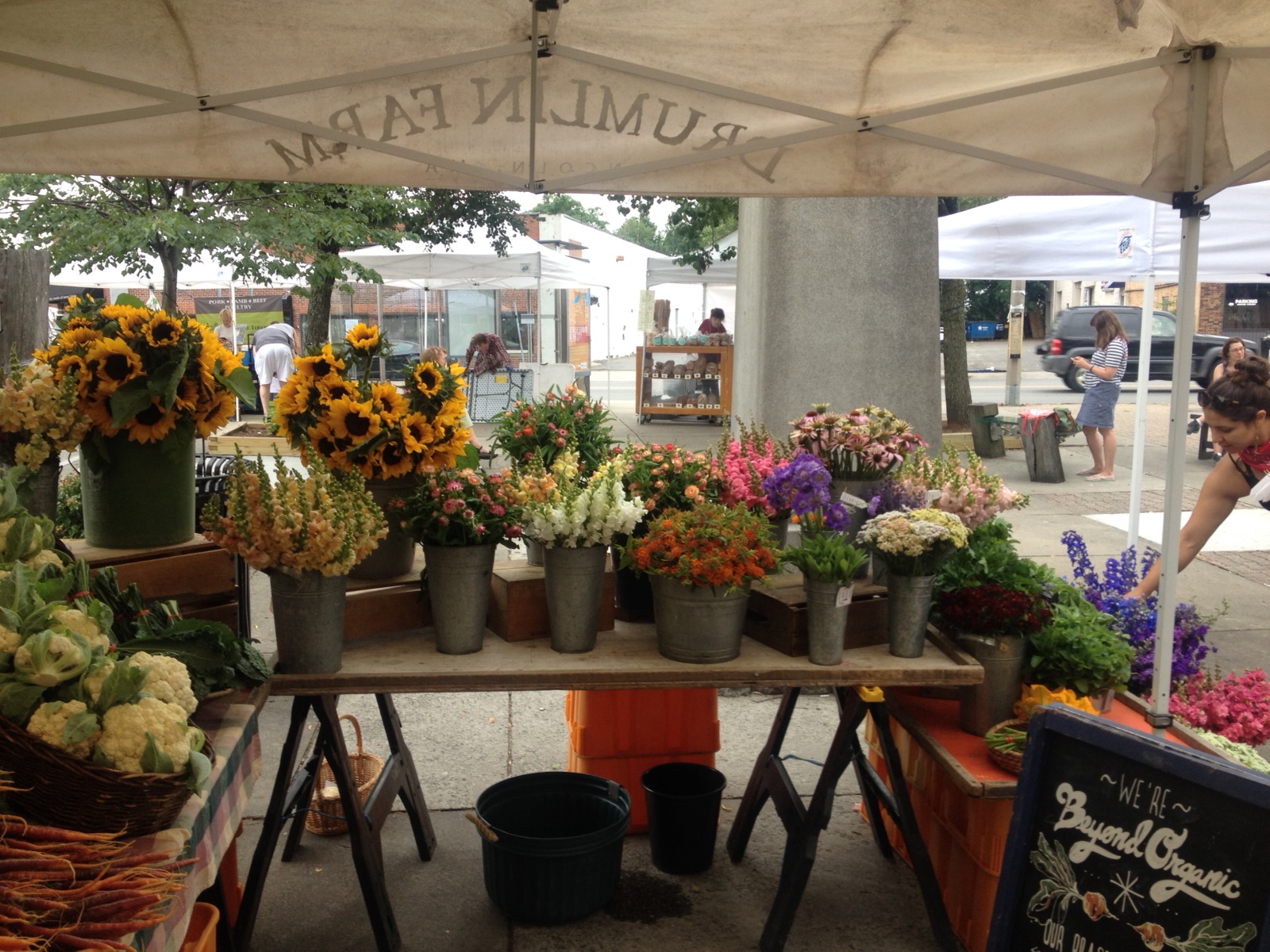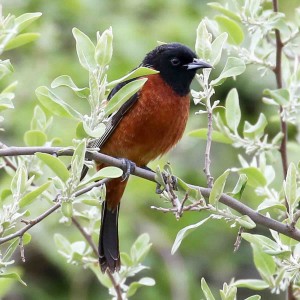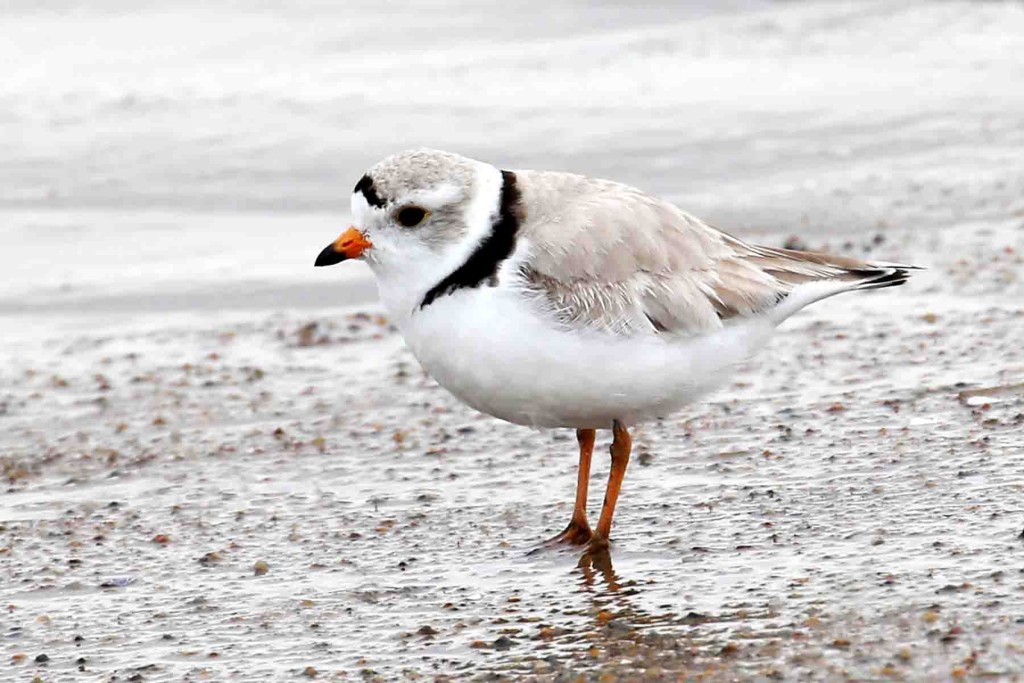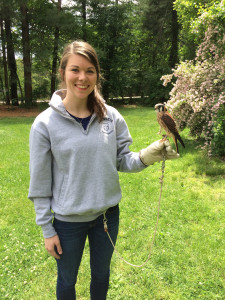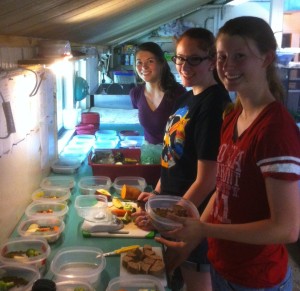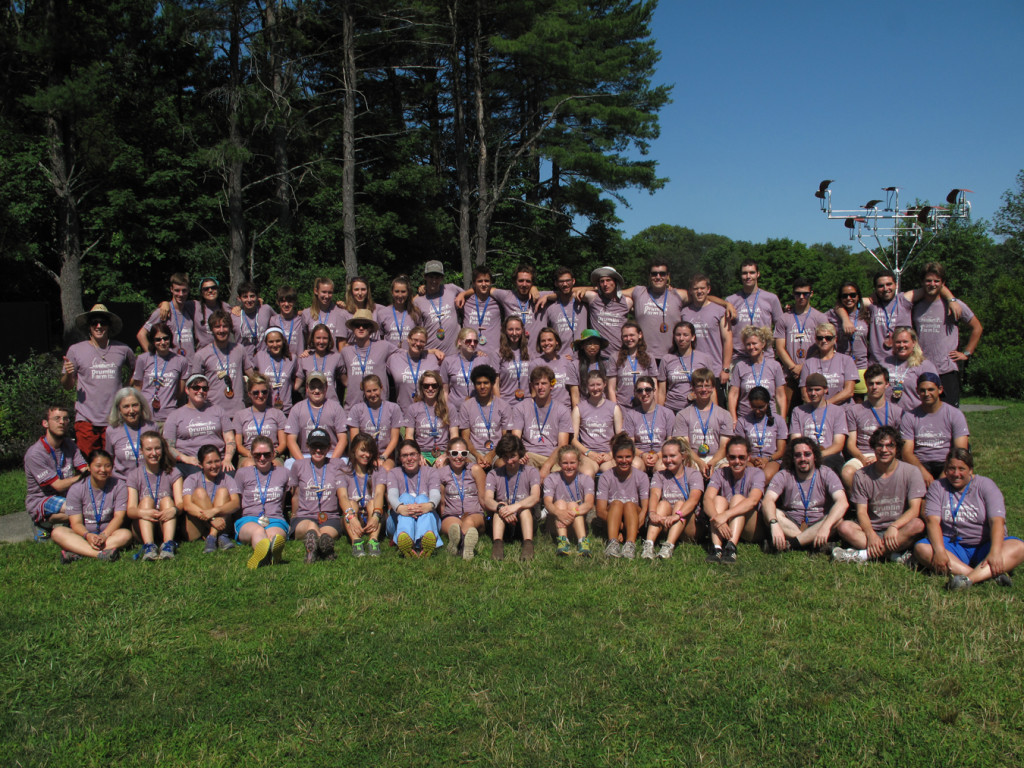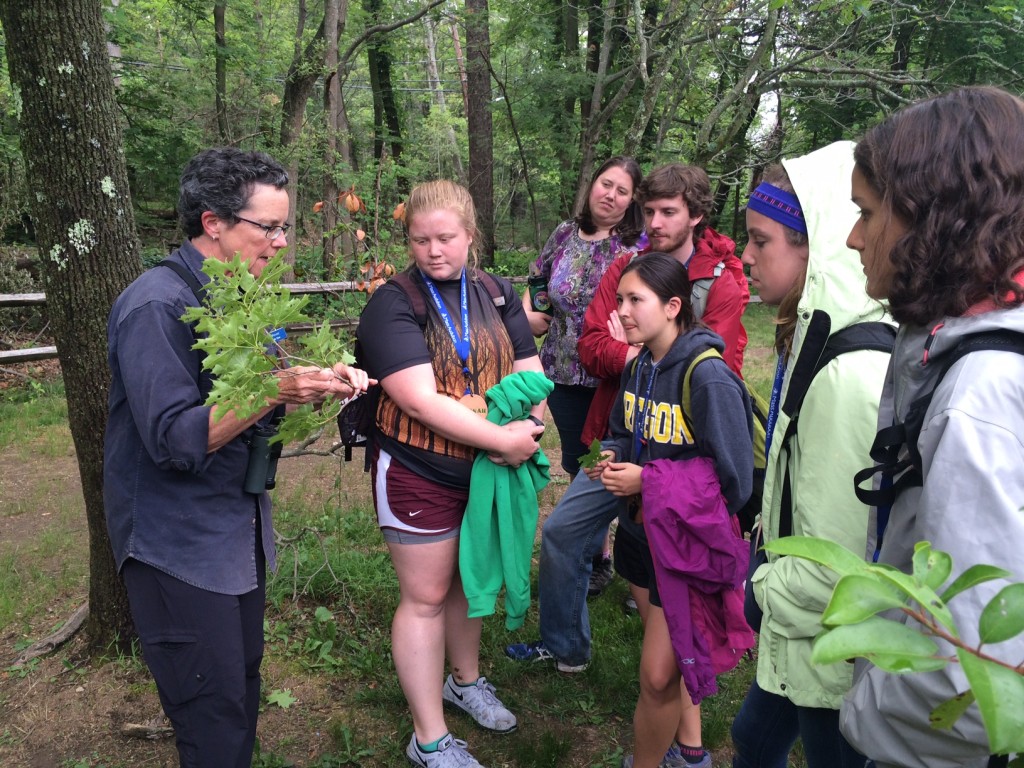Post by Drumlin Farm Sanctuary Director Renata Pomponi
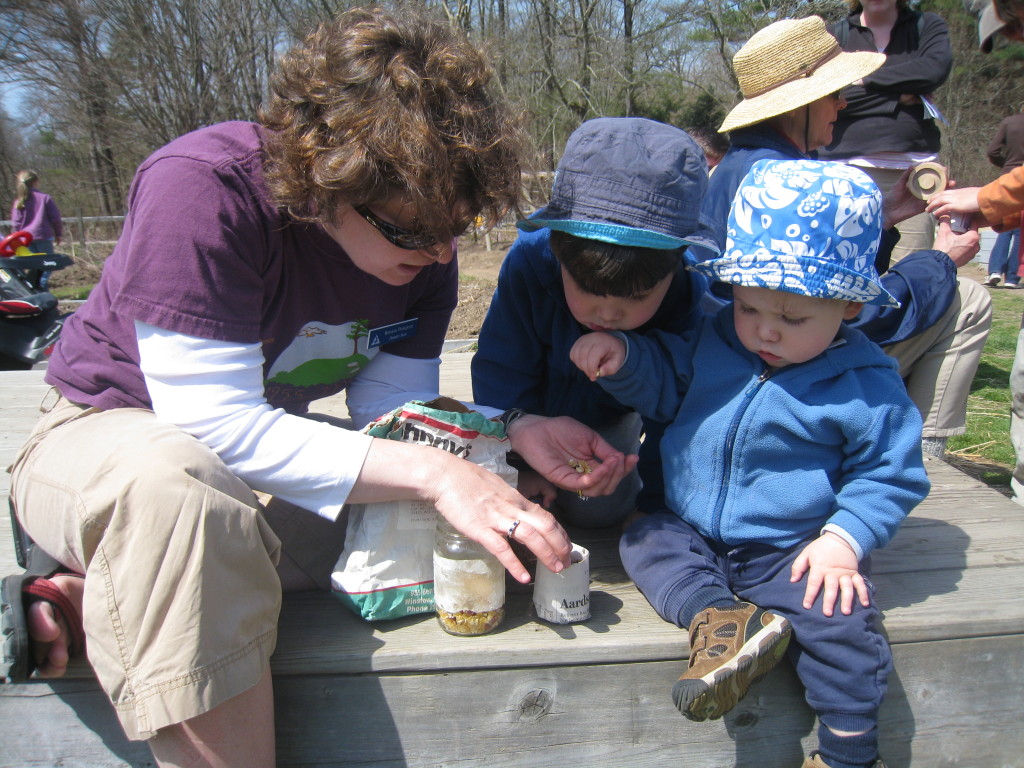
Drumlin Farm Sanctuary Director Renata Pomponi and her children
How does a physics major turned management consultant end up at a working farm and wildlife sanctuary? For me, the journey was a gradual series of life moments ending with a big leap.
Being outdoors and being curious about the world is something that has always been part of my life, starting as a child where every summer day (and most weekends throughout the year) were lived outside. Our family vacations were spent camping in the New England woods, playing in rivers and hiking mountains, with plenty of time to ask my parents a million questions about how the world works:
Why is that star in a different place than last night? What makes the river run faster in this spot? How can I tell which animals live here? Why is the landscape different as we hike to higher altitude?
Science was all around us, with opportunities to observe, hypothesize, test, and discover at every turn, and I was lucky enough to have parents who encouraged our questions and gave us time outside to search for the answers.
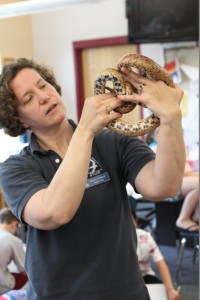 That thirst to make sense of the world through a scientific lens led me to MIT, where the Charles River served as a temporary outdoor playground to sail on, row over, and run along when life in the academic world seemed too overbearing. I never felt entirely at home in the lab, preferring to find the spaces in between the disciplines—how a theoretical concept could be adapted for human use, or how the technical aspects of a system could combine to form a whole greater than the sum of its parts. I came to realize that the world needs people who are able to integrate disparate pieces of information into effective systems, ones that can bring different information and perspectives together for the benefit of all.
That thirst to make sense of the world through a scientific lens led me to MIT, where the Charles River served as a temporary outdoor playground to sail on, row over, and run along when life in the academic world seemed too overbearing. I never felt entirely at home in the lab, preferring to find the spaces in between the disciplines—how a theoretical concept could be adapted for human use, or how the technical aspects of a system could combine to form a whole greater than the sum of its parts. I came to realize that the world needs people who are able to integrate disparate pieces of information into effective systems, ones that can bring different information and perspectives together for the benefit of all.
After grad school, my work as a management consultant allowed me to help companies develop business strategies that integrated the best of their technical and organizational capabilities with market needs. And yet I still felt the pull of the outdoors. During out-of-town assignments, I would take time in the evenings to explore the parks beyond the walls of my hotel; at home on the weekends, my husband and I would go mountain biking on our favorite singletrack trails and organize summer trips to national parks.
When our two boys came along, I found the times I enjoyed most with them were spent outside, sharing the experiences of my youth and watching them take their own first steps towards curiosity and exploration. The time was right for a major change, and after much soul searching, I decided that science education for children seemed like the perfect way to combine my scientific background with my love of the outdoors. I stumbled upon a job posting for part-time Teacher Naturalists at Drumlin Farm, and when I took a walk around the property after my first interview, it looked exactly like I remembered from my own childhood visits. I had found my way home.
Eight years later, the joy of being outside and sharing my curiosity about nature with our visitors and program participants is still the highlight of each day. In my most recent role as Program Innovation Coordinator, the most satisfying moments have come when we were able to leverage tools not commonly seen at a nature center—smartphones, engineering challenges, and even LEGO bricks—to engage and educate in new ways.
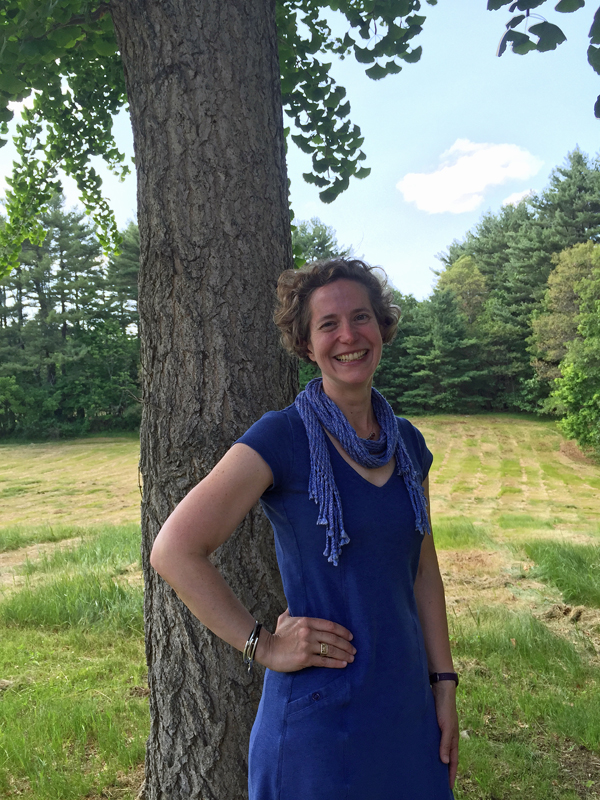 As Sanctuary Director, I plan to look for the spaces in between the disciplines—in our case, the ways in which farm, nature, and people interconnect—so that Drumlin Farm can continue to be a place where children and adults are inspired to explore, discover, and think about the world in new ways. Encouraging scientific thinking and using our sanctuary as a living laboratory to develop deeper understanding of sustainability, climate change, and ecological issues will be a high priority.
As Sanctuary Director, I plan to look for the spaces in between the disciplines—in our case, the ways in which farm, nature, and people interconnect—so that Drumlin Farm can continue to be a place where children and adults are inspired to explore, discover, and think about the world in new ways. Encouraging scientific thinking and using our sanctuary as a living laboratory to develop deeper understanding of sustainability, climate change, and ecological issues will be a high priority.
I also look forward to working with our talented staff to grow our commitment to diversity and accessibility as well as our ability to serve as a model for sustainable agriculture and ecological management. Alongside this is a desire to maintain what lies at the heart of Drumlin Farm’s enduring success: the place, the programs, and the people.
I look forward to hearing reflections, questions, and ideas from the Drumlin Farm community about how we can continue to improve. Please feel free to reach out to me at any time to share your thoughts by email or phone (781-259-2201).
Thank you for your continued support in making Drumlin Farm Wildlife Sanctuary a special place for us all!
Along with lifelong farmers and educators, Drumlin Farm’s staff includes a variety transplants from other career paths, including engineering, veterinary medicine, music, sales, entrepreneurial ventures, and even podiatry! Our “Meet the Staff” series will explore the many ways that the people who work at Drumlin Farm found themselves drawn to common goals of environmental education, sustainable farming, and conservation.
